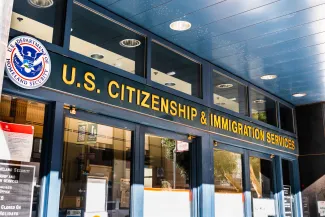
Report: Undocumented immigrants paying nearly $100 billion in taxes annually
Click play to listen to this article.
(Maryland News Connection) A new report found undocumented immigrants are paying substantial taxes nationwide.
The Institute on Taxation and Economic Policy found undocumented migrants paid more than $96 billion in federal, state and local taxes in 2022, with Maryland seeing more than $770 million of tax revenue.
Carl Davis, research director for the Institute on Taxation and Economic Policy, said narratives around how migrants are impacting the nation do not always stand up to scrutiny.

© Sundry Photography - iStock-1189510256
"I think we're able to dispel a lot of myths around this one-sided idea that undocumented immigrants are claiming benefits and not paying any taxes," Davis contended. "It's really not tethered to reality."
With some undocumented workers being paid under the table, the study found if migrants had access to legal status such as a guest worker program, the states and localities would realize an additional $7 billion in tax revenue annually, while adding another $33 billion in federal revenue.
The report showed more than a third of the total paid by undocumented workers goes toward payroll taxes such as Medicare, Social Security and unemployment insurance, programs the same workers are unable to access. With presidential campaign rhetoric often focused on the topic of immigration, Davis noted big policy changes would impact the economy.
"If we're going to dramatically change course on immigration policy, say through ramping up deportations, for example, that's really going to shrink the size of the labor force at a time when a lot of industries are already struggling to fill the positions they have available," Davis emphasized.
While some undocumented immigrants own homes, most rent, and the report found migrants were paying more than $10 billion in property taxes either directly or indirectly via payments to landlords. The study reported most undocumented adults have lived in the U.S. for 16 years or more.
"By and large, these are people who are trying to put down roots and are trying to have a better life for themselves and for their families," Davis added. "These are folks who have been here for quite a while, and who are really contributing to the economy and to our funding of our public services in significant ways."
















